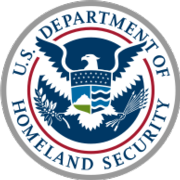
NACD’s membership directory has long been an important resource to help keep our members connected. Just over a year ago, NACD pushed forward with the idea to implement a new format for their membership directory by going digital!

The accelerated rate of change occurring across most industries today makes strategic planning especially challenging for business executives. It has become increasingly difficult to maintain a competitive edge in an era of low barriers to entry, increased competitor activity, rapidly changing customer needs, quickly evolving technology, and economic and legal trends. As the workplace continues to evolve, it will become ever-more important to integrate your business planning with your talent-alignment strategy.

As the school year wraps up for many across the country and we commence our summer activities, we begin the season with a somber day set aside to remember soldiers fallen in combat in America’s wars and to honor veterans who have lost comrades in America’s struggle to protect life and liberty.

Our transportation systems and infrastructure go hand-in-hand. That’s no secret. One can’t happen without the other. Unless we start to seriously prioritize both, American businesses and taxpayers will end up fronting the cost.

Since taking over as President and CEO of NACD in 2014, I have marveled at the ability of the Class I railroads to increase their fees to the shipper and receiver community at staggering rates with little or no fuss from most on Capitol Hill and the regulatory agencies. The escalating fees call into question the competitive nature of the industry and fairness when it comes to how small businesses are to work with the larger Class I railroads. Compounding matters more, consolidation of the major railroads has reduced access to rail service for most shippers and receivers to just one railroad. This dire situation for rail customers has been exacerbated by the advent and implementation of Precision Scheduled Railroading (PSR), which has created enormous delays and service issues.

Meeting face-to-face with legislators is the most effective way to get your message heard on Capitol Hill, and Fly-In participation by our members – the constituents of the legislators NACD works with throughout the year – is critical to advancing the day-to-day work NACD does here in Washington. And there’s still plenty for us to accomplish this year.

Earlier this year, Congress narrowly avoided allowing the U.S. Department of Homeland Security’s (DHS) Chemical Facility Anti-Terrorism Standards (CFATS) program to sunset by passing a short-term 15-month extension of the program’s expiration date. Given the circumstances, the passage of the last-minute extension was a major legislative success. Nevertheless, in order to pass a multi-year reauthorization and avoid a similar situation come April 2020, it is imperative Congress commit to working together in a timely manner to ensure the security of the nation.

Earlier this week, I attended the University of Innovative Distribution (UID) in Indianapolis, IN, as program chairman. It has been a true pleasure and source of pride to serve this year as the UID chair. This highly informative four-day conference is a concentrated educational program focused on the unique needs of the wholesale distribution industry.

As our members recently saw, the association and its industry partners were successful in securing a short-term extension to keep the U.S. Department of Homeland Security’s Chemical Facility Anti-Terrorism Standards (CFATS) program going past January 18, 2019.

Chemical distributors depend on reliable, competitive rail service to deliver products to customers in nearly every industry sector. Unfortunately, the railroad industry is currently a near-monopoly with only four rail providers controlling 90 percent of the traffic regulated by outdated policies that hinder competition and fair service.